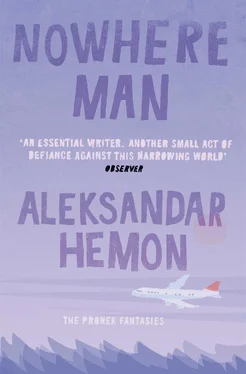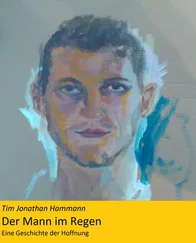As soon as Mirza got his guitar, they found George: their classmate Branko, who took violin classes, and was shy and sensitive and could read music. Pronek and Mirza recruited Faik, their English classmate, who was an owner of a tambourine with little rattly cymbals and who, more importantly, looked like Ringo: meaty nose, droopy mouth, and rogue demeanor. Bube rehearsed mainly in Mirza’s living room, to the audience of the tear-boy and rejoicing jingling glasses, playing “She Loves You (Yeah Yeah Yeah),” “Girl,” “Nowhere Man,” “Help!”
They had their first performance in their music class, the audience exchanging glances and giggling. The disgusted music teacher, a decrepit man with hair in his ears, considered it all jungle music. Yet, you could tell they were seen differently after the gig— Bube had done something none of their classmates dared do, a few catastrophic blunders due to sweaty palms notwithstanding.
After the success of their first show — which triumphantly ended with tepid applause — they were ready to play at a school dance, where eighth-grade girls would be in the audience, in abundance, deep enough into puberty to create a shapely landscape. The show was scheduled for May 4, 1980. But May 4, of course, was the day Comrade Tito died: the news showed wailing soccer players and hysterical mothers and people standing frozen on the street as if their batteries had abruptly drained. When Bube arrived in the school gym where the show was to take place, there was already a Tito picture under the basket, framed by a morose black ribbon. They stood with their guitars and their radios, meant to be the amplifiers, watching the school janitor — a stocky, mean man — taping I POSLIJE TITA TITO, letter by letter, on the wall. Pronek was afraid that they might be conspicuous in their eagerness to perform, so they furtively left the gym and stood in an empty entrance hall, mad at Tito and his selfish mortality. Recollecting, in whispers, this moment several days later, they all agreed they should have produced some tears, and they unpatriotically hadn’t.
Bube never played at Pronek and Mirza’s school, to the relief of the principal, who was uncomfortable with their English songs, clearly inappropriate at the time of the great loss. But Bube got over their loss, distracted by the completion of their elementary education. They received their school diplomas in a subdued ceremony (the country still mourning its leader’s untimely demise) that nonetheless provided an opportunity to have a last glance at all the girls budding in their pioneer uniforms.
They spent the summer of 1980 practicing more Beatles songs. Faults, however, already started occurring. Ringo tossed his tambourine on the floor and declared that he was bored playing only the Beatles songs — he had received a Clash album from his cousin in Munich and wore Vibrators and Buzzcocks buttons on his (deliberately) torn shirt. He started hitting his tambourine much harder than necessary (which was echoed by the furious neighbors, sometimes producing interesting syncopation) and snickered derisively as Pronek sang “Yesterday” with what seemed to be a genuine feeling. The final blow came when Pronek brought in his own song. Heavily blushing, his vocal chords constricted to a squeal he attempted to conceal as sensual whisper, gently strumming his mistuned guitar, Pronek sang: “If you know her name, tell her I love her. . If you know her name, tell her I’ll never forget her. .” Midway through the song, devoted to Pronek’s as yet unmet eternal love, Ringo started gagging. Pronek stopped, blood rushing to his ears, with a momentary vision of breaking his guitar against Ringo’s fucking face. This is stupid, Ringo said. First, why did it have to be in English — it was not their language. Second, who is this you? And if he didn’t know her name, did he know her? And did you know her? Is there anybody who knows her name? Ringo unleashed a deluge of scholastic and rhetorical questions, as the rest of them witnessed Pronek’s eternal love disintegrate into plain nonsense. Bube never recovered. Ringo changed his nickname to Sid and became the drummer for a punk band named Depresija. Shortly after Ringo’s departure, George informed them that his brief existence in this world as George came to an end, because his violin teacher ordered him to drop the guitar as it was ruining his touch.
Pronek himself had a period of severe self-doubt after John Lennon was killed. On a December night, he spent a few hours staring out the window at the snow swirling under a light pole. He imagined himself mortally wounded, hastening toward death in a speeding ambulance, trying to say something appropriate for such a grave moment: “Take care of my world.” Or: “There must be something behind this wall.” He imagined a song that would include those words, and started shuffling lines and rhymes, but it occurred to him that if his was a life in a parallel netheruniverse, if he and Bube echoed the life of John and the Beatles, then he might die soon too. The dark night and the lonely light posts with snowflakes sparkling under their sorrowful gaze, it all scared him in its endless sadness. He escaped his room and joined his parents, watching Sherlock Holmes. He sat in silence, while they wondered, half panicking, what it was that made him spend time with them voluntarily.
Pronek and Mirza mourned John Lennon and the band for a couple of weeks, then discovered that Mirza’s parents hid a stack of magazines with naked women in the couch. They spent a few weeks studying their anatomy and reading readers’ letters, which all involved randy random encounters in the darkness of movie theaters or on desolate beaches haunted by arousable German housewives. No wonder then that Pronek spent the summer vacation pressing his desire against the hot sand, acquiring sunburns on his back, as foreign women strolled on their way to fornication through the field of his blurry vision.
It might strike the reader that the life of this hero is not particularly exceptional, for many a boy indulged in fantasies in which the readiness of unknown women to make passionate, yet educational, love to a gangly youngster was directly proportionate to the impossibility of such a scenario ever occurring. What young man or woman did not vacillate between the conviction that no one in their right mind would touch this body and the insight into one’s own implausible, youthful beauty? Is there anybody who doesn’t remember the first shy moments of caressing someone else, the moments when all the idiotic pornographic fantasies perish in the face of a person who has a voice and a smell and a particular imperfection — say, a birthmark shaped as a crescent moon — visible only as your lips slide down her neck, as you feel the growl of pleasure in her body? The reader must remember, before judging the commonness of such recollections, that they gain in value when that person is dead (as is the owner of the crescent moon, killed by a shell in 1993). Your memories become fantasies if they are not shared, and your life in all its triviality becomes a legend.
Years later, displaced in Chicago, Pronek often wondered whether there really had been a Karen, who arrived in a Trabant from East Germany and lived in a first-floor apartment, whether her long and silky pigtails fluttered, like birds on a leash, around her head as she jumped rope; or if he really had seen a dead man, bobbing facedown in the shallow Miljacka, a chunk of flesh missing from his neck; or if he had ever seen his father’s single tear, rolling from under his sunglasses, exactly replicating the tear of the boy in Mirza’s parents’ living room, his father telling him the story about his high-school girlfriend who fell off her bike and died of a brain hemorrhage; or if he really had ever cut off buttons from old shirts, and assembled them on the floor so as to replicate the constellations he found in the atlas of the sky.
Читать дальше












